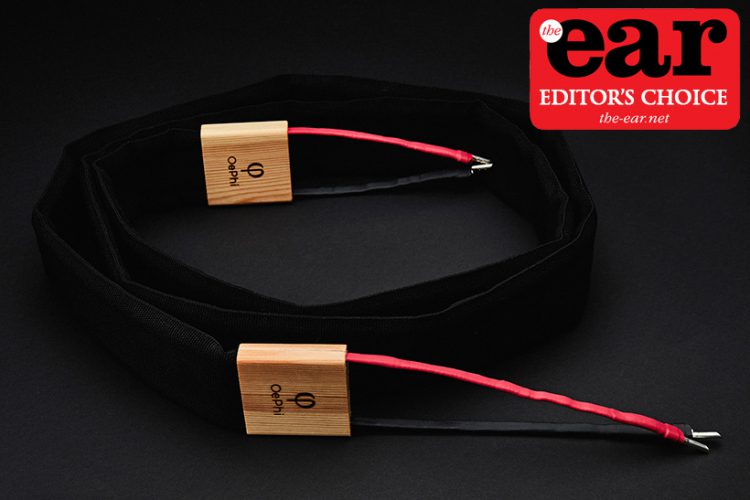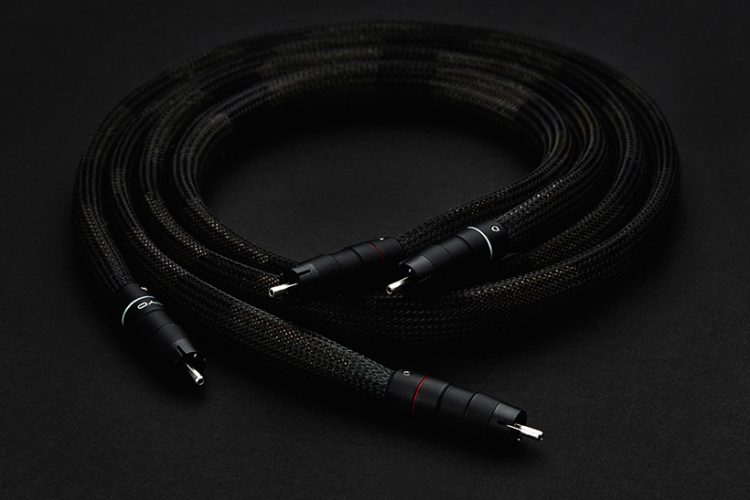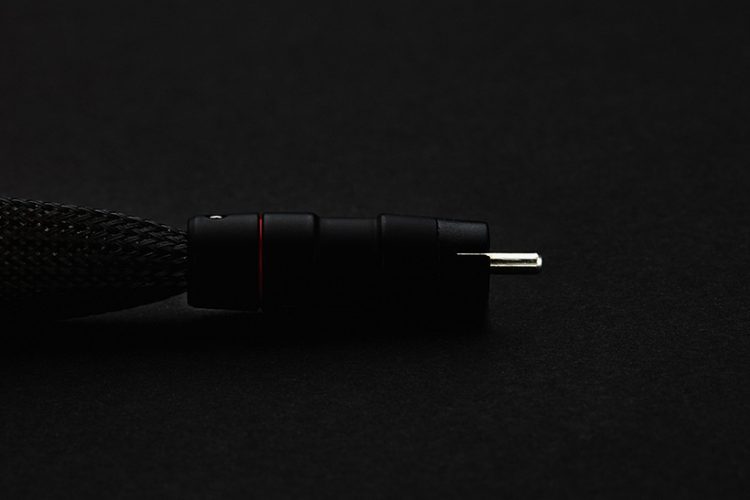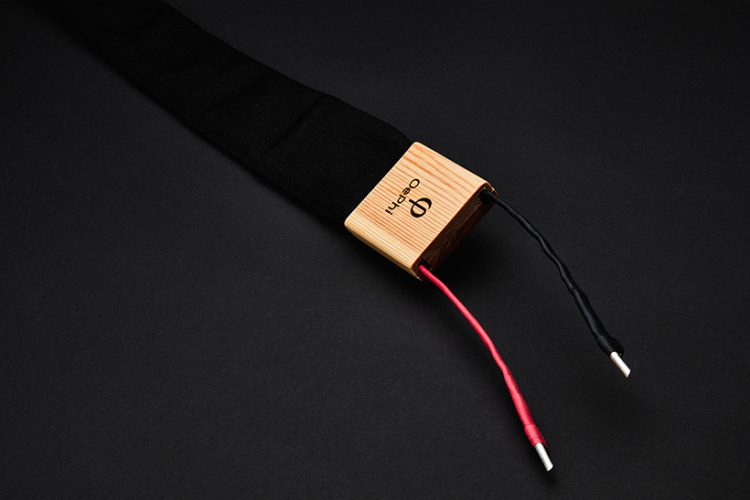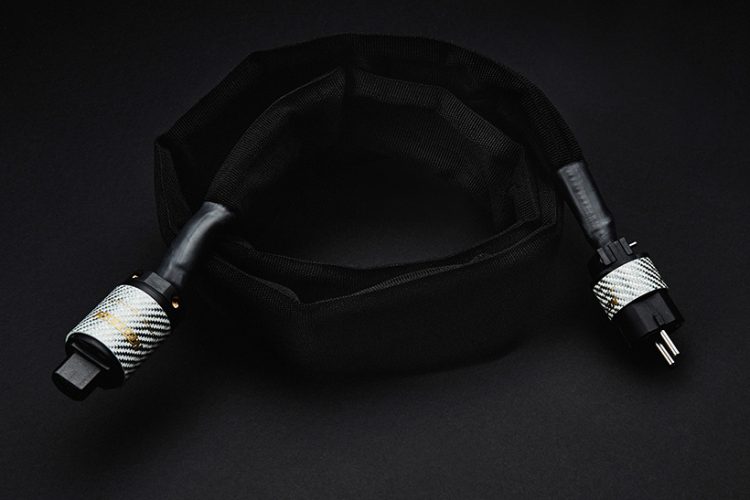OePhi Transcendence and Immanence
I consider it my primary duty as a reviewer to be honest with you, loyal reader, and so I must begin this piece by telling you that when our esteemed editor asked me if I would review cables from a new company based in Denmark called Oephi, I groaned inwardly. Not more cables? Do we need another choice in an already crowded market? However, being the polite fellow that I am what I said was: I would love to. My goodness, I am so glad that I did, because the past few weeks have been some of the best I have spent in this always absorbing but sometimes infuriating hobby of ours.
OePhi is the brainchild of a Dane called Joakim Juhl, with whom I have enjoyed several Zoom calls during the review period. He is an engineer by profession and an audiophile and music lover by inclination. Whilst teaching at an Ivy League college in the US a few years ago (did I mention that he is rather bright?) he started to investigate the effect of cables in his own system and decided that it would be interesting to see if he could not come up with a concept that would optimise timing and minimise phase distortion, so that cables stop being an impediment to listening pleasure and instead get out of the way, allowing the listener to hear what the musicians, producers and sound engineers had intended.
As soon as I opened the first box, I realised that we were indeed dealing with a completely different design ethos, which was obviously driven by the goals set out above. One look at the accompanying pictures will confirm this. There are three levels of cable available, named in ascending order: Ascendance, Transcendence and Immanence. I was sent a pair of Immanence loudspeaker cables, Immanence mains cables, Transcendence RCA cables and a digital RCA cable from this mid-range group too. The first surprise is that the outer sheath of every cable is very loose fitting. The RCA interconnects in particular reminded me of snakes caught in the middle of shedding their skin. The mains and loudspeaker cables are much wider and flatter than others of their ilk, but are also clad in the loose fitting clothing.
The result of all this means that the OePhi cables are much more visible than many of their competitors, but that is the price one has to pay for the benefits that they bring to the party. And my goodness, the benefits they bring are astonishing.
Sound quality
When the Oephis arrived I had just settled in with the Moonriver Model 404 integrated amplifier, and which was the subject of a review already published in the Ear. To summarise, I was already very taken with the Moonriver and then I introduced the OePhi Immanence loudspeaker cables… Pick your own cliché here, but I’ll settle for: my jaw suddenly succumbed to gravity. Whereas before I had been listening to a live concert, now I was actually on stage with the band. Whatever I played, and from whatever source, the effect was the same, whether it was music or speech. My wife, a civilian when it comes to audiomania, commented as soon as she sat down in front of the television that first evening. Actually she asked the question that we all dread from our partners: “What have you done to the system?”. But in this case it wasn’t accusatory, it was complimentary.
The sense of realism, of being able to hear every musical strand, every nuance on a movie soundtrack, was extraordinary. At one stage I switched back to my usual cables and was disappointed at the loss of that OePhi magic.
In the days that followed I introduced the RCA interconnects to bring my phono stage and my SACD player into the Moonriver, having first played through them with my existing (and very good) RCA cables. The sound of vinyl was better than anything I have ever heard from my system. The music simply flowed from Harbeth C7ES XD loudspeakers as if they were not there at all. It did not sound like hi-fi really, because the music enveloped me and sounded real, in a way which is very hard to convey in words. It was addictive. Whatever genre of music I played, from classic rock, through ECM modern jazz to classical choral works, the effect was the same. It was astonishing.
Finally, I introduced the Immanence mains cable to the Moonriver Model 404. It replaced a highly regarded (and very positively reviewed by me) cable from another manufacturer, and my expectation was that I would hear no difference, but I was so wrong. Performance improved again. There seemed to be a tad more energy in the music, and everything just coalesced into a truly immersive musical experience. Adding Immanence mains cables to the two source units gave some additional sonic benefits but not at the same seismic levels as had been heard from the amplifier.
The days that followed went by in a blur of musical delight. I should have been writing, but I couldn’t stop listening and when I was listening I was so immersed in the music that the outside world seemed to disappear. I would emerge from the listening room to find several messages on the answerphone, because I had not even noticed that the telephone was ringing.
In due course, The Moonriver had to be taken out and my own Lyngdorf TDAI3400 reinstated to its place on the rack. However, I kept all the OePhi wires in place, and added the digital RCA to connect the Lyngdorf CD2 with the mothership. I decided that I should listen to some music on good old compact disc, that now rather derided medium which promised almost 40 years ago to give us ‘perfect sound forever’. Like many of you I have got several thousand of the little shiny discs, having decided that I would keep them, despite the arrival of very decent streaming services and my preference for even more old-fangled vinyl. Through the Lyngdorf system, which is totally digital, with the OePhi Transcendence 75ohm cable carrying the data from source to DAC, CD sounded closer to vinyl than I have yet heard it. And that, by the way, is a high compliment. I played a stack of discs, and they sounded warm yet detailed, with pace, rhythm and timing of the highest level.
The OePhi effect with the Lyngdorf was still clearly audible, but not quite as startling as it had been with the much more traditional class AB Moonriver. Perhaps it would be too much to hope for those first revelatory moments with the OePhi effect to ever be repeated. I think it was the unexpectedness of it all that caught me so much by surprise.
The last act of this cable drama occurred just as I was about to disconnect all the OePhi and box it up for the long journey home. A Hegel H390 amplifier/DAC arrived for review, along with the brand new Hegel V10 phono stage. With Joakim Juhl’s permission I hung on to the Oephis and used them with the Hegel units, again feeding signal to my Harbeth C7ES XDs. I switched between the OePhi cables and my usual ones several times in the next couple of days, and once again was amazed at how much I gained with the OePhi cables. The Hegel is a less warm sounding amplifier than the Moonriver but nonetheless that sense of being totally immersed in the music returned. The OePhi experience allows the listener to hear the characteristics of the components chosen without adding or subtracting anything from the source material, and yet somehow making everything seem more real and more involving.
Of course this is a subjective review. I have neither the equipment or the skills to be able to measure any of this. But I am reporting to you my experience, which may be different from yours. I started by telling you that I wasn’t that keen to do this review. In a world with an already mind-boggling choice of cables, I wasn’t sure where a newcomer, especially at these price-points, would find a niche. Well I was wrong. OePhi is the creation of a man with the technical skills to transform a theoretically excellent idea into a suite of extraordinarily capable products. If you already like the system that you have chosen I suggest that you might be as staggered as I was by the addition of these hand-built cables. Yes, they are more visually striking than many of their competitors – you wont’s sneak these past an unsuspecting partner – but the function has dictated the form. And the bottom line is that they work, and they work brilliantly.
Type: loudspeaker cable
Topology: hybrid twin separated
Conductor: copper
Dielectric: cotton damped air
Width: 7x1cm
Lengths available: 1.5m, 2m, 3m, 4m, 5m
Warranty: 5 yearsImmanence power
Type: UK 13A to IEC mains cable
IEC terminator options: EU (Schuko), UK and US. (ask for special requirements)
Conductor material: copper
Dielectric: cotton damped air
Diameter: 7x1cm,
Lengths available: 1m, 1.5m, 2m
Warranty: 5 yearsTranscendance RCA
Type: analogue interconnects
Topology: hybrid twin separated
Conductor: copper
Dielectric: cotton damped air
Diameter: 1x2cm
Lengths available: 1m, 1.5m, 2m
Warranty: 5 yearsTranscendance Digital
Type: digital interconnect (coax SPDIF)
Topology: hybrid twin separated
Conductor: copper
Dielectric: cotton damped air
Diameter: 1x2cm
Lengths available: 1m, 1.5m, 2m
Warranty: 5 years
Immanence loudspeaker cable with banana connectors €3906/4m pair
Immanence power cable €2250/2m
Transcendence RCA interconnect €1325/1m pair
Transcendence RCA digital cable €1125/1m
All prices include worldwide shipping and tax
Type:interconnect, digital, loudspeaker & power cables
Author: Chris Kelly
